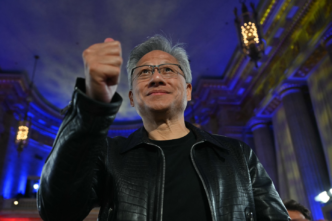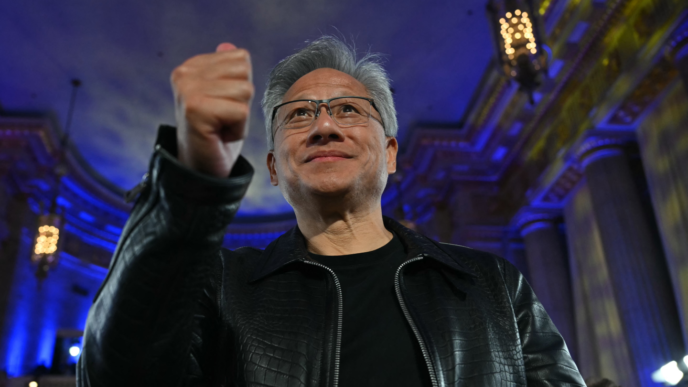In a move highlighting the growing concern over transatlantic trade tensions, Switzerland’s Economy Ministry has reportedly sought assistance from banking giant UBS to navigate the economic implications of U.S. tariffs. The request underscores the complex interplay between international trade policy and financial strategy, as European countries scramble to assess the potential fallout from U.S. protectionist measures.
The Context: U.S. Tariffs and Global Trade Uncertainty
The latest U.S. tariffs, targeting a broad spectrum of goods including metals, industrial components, and technology products, have reignited fears of escalating trade disputes. For Switzerland—a small but highly trade-dependent economy—the impact of American tariffs is multifaceted:
- Swiss exports to the U.S. could face higher costs, particularly in precision instruments, chemicals, and pharmaceuticals.
- Multinational Swiss corporations, such as Nestlé and Roche, must reassess supply chains and pricing strategies to maintain competitiveness.
- Financial markets could experience volatility as investors weigh potential ripple effects of escalating tariffs.
Amid these pressures, the Swiss government has turned to UBS, leveraging its deep expertise in global finance and trade advisory services.
UBS’s Role: From Banking to Strategic Guidance
UBS, one of Switzerland’s largest and most influential financial institutions, has long served as a bridge between domestic companies and international markets. The bank’s advisory role in this context involves:
- Economic Impact Analysis: Modeling the effects of tariffs on Swiss exports, imports, and corporate earnings.
- Trade Compliance Strategy: Helping companies navigate complex U.S. tariff codes and identify potential exemptions or mitigation pathways.
- Investment and Hedging Advice: Guiding businesses and investors on risk management strategies, including currency hedging and supply chain adjustments.
“UBS has the analytical capacity and global network to provide actionable insights,” said a Swiss government official who spoke on the condition of anonymity. “Their guidance helps policymakers and private firms alike understand how to respond effectively.”
Why Switzerland is Concerned
Switzerland maintains a highly export-oriented economy, with international trade accounting for roughly 65% of its GDP. The U.S. is one of the country’s top trading partners, particularly for high-value industries such as pharmaceuticals, chemicals, and precision instruments.
The tariffs could therefore have disproportionate effects on Swiss companies, forcing them to absorb costs or pass them on to American consumers, potentially reducing competitiveness in a critical market.
Furthermore, the Swiss government has emphasized that such measures may have wider European repercussions, given the integrated nature of supply chains and multinational corporate structures across the continent.
UBS Expertise in Trade Disruption
UBS’s history of advising on trade and macroeconomic issues positions it as a natural partner for the Swiss government. The bank’s involvement includes:
- Monitoring policy developments in Washington, including Congressional debates on tariffs and trade enforcement.
- Assessing cross-border financial exposure for Swiss corporations.
- Providing guidance on strategic market diversification to reduce reliance on U.S. trade flows.
“Financial institutions like UBS are increasingly asked to play a dual role—managing investments and providing economic intelligence,” said Daniel Frei, an independent Swiss trade analyst. “This reflects the complexity of modern trade conflicts.”
Potential Implications for Swiss-U.S. Relations
While the Swiss government and UBS stress that their collaboration is largely advisory, the situation underscores the delicate balance in U.S.-Swiss economic relations. Switzerland has traditionally maintained close ties with Washington, but rising protectionism introduces new challenges:
- Bilateral trade negotiations could be affected by Swiss responses to U.S. tariffs.
- Swiss companies may reconsider expansion plans in the U.S. if tariffs persist or escalate.
- Policymakers may accelerate efforts to strengthen trade relations with alternative markets in Asia and Europe.
A Broader Trend: Governments Leaning on Banks for Trade Insight
Switzerland’s engagement with UBS reflects a broader pattern in which governments are increasingly relying on private financial institutions for economic intelligence. In an era of rapid trade policy shifts, banks are valued not just for capital management but also for:
- Predictive modeling of policy impacts
- Scenario planning for supply chain disruptions
- Strategic advice on mitigating tariffs or sanctions
This trend highlights how intertwined modern finance, policy, and global trade have become.
Conclusion: Navigating the Tariff Era
Switzerland’s decision to involve UBS underscores the high stakes of U.S. tariff measures for small, open economies. By leveraging private-sector expertise, the Swiss government aims to shield domestic businesses, preserve competitiveness, and anticipate shifts in global trade flows.
As U.S. trade policies continue to evolve, the collaboration between state institutions and financial giants like UBS may become a model for other nations seeking to navigate the increasingly complex landscape of international commerce.















